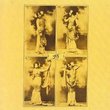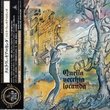| All Artists: Museo Rosenbach, Venus Hum Title: Zarathustra Members Wishing: 2 Total Copies: 0 Release Date: 3/4/2003 Album Type: Import Genres: Alternative Rock, International Music, Rock Styles: Progressive, Progressive Rock Number of Discs: 1 SwapaCD Credits: 1 UPC: 743219845221 |
Search - Museo Rosenbach, Venus Hum :: Zarathustra
 | Museo Rosenbach, Venus Hum Zarathustra Genres: Alternative Rock, International Music, Rock
Special limited edition reissue of the Italian progressive rock act's 1974 debut album, packaged in a miniature gatefold LP sleeve. BMG. 2003. |
CD DetailsSynopsis
Album Description Special limited edition reissue of the Italian progressive rock act's 1974 debut album, packaged in a miniature gatefold LP sleeve. BMG. 2003. Similar CDs
|
CD ReviewsPrimitive Italian Prog. BENJAMIN MILER | 10/18/2001 (3 out of 5 stars) "I must admit, I found their late nineties release, Exit, far more appealing than this 1973 effort. The difference between the two is that after twenty five years they developed a much keener sense of melody and used the prog arrangements to enhance the delivery of the compositions. On Zarathustra it often sounds like an exercise in jamming on vaguely related themes. I found the musicianship to be somewhat dated and the vocals somewhat strained. It's not bad just not "classic Italian prog" as other reviewers would suggest. I much prefer the 70's output of PFM or Banco Del Mutuo Soccorso where composition reigned King. If you enjoyed the first Banco recording, Le Orme's Collage or Balleto's Ys you may like this one. Proceed with caution...Simon" One of the best in italy pablo alicea | toa alta, PR United States | 02/23/2003 (5 out of 5 stars) "zarathustra is a masterpiece excellent recording very good songs (in the progresive way)a lots of mellotron the band is in same status as pfm,banco,area(area is more jazzier)it does not have the virtuoso like franco musida & flavio premoli of pfm or gianni & vitorio of banco .but museo work as a team to compose 8 great song that you would wish hear moore this band is one of best. in italia the other ones like orme,loconda d fate,pfm after mauro pagani depature(jet lag)will bore you to death .you would love more this production is like hearing pfm un per amico,(photos of ghost,but more progresive remember that this recording took place 1972&1973 era if you progresive hardcore fan this a most if it to old for you then go for flower king(progresive rock group)up to date technologies with good tunes.and by the way museo rosenbach has another prodution is called --exit-- i am waiting for the release." Museo Rosenbach - 'Zarathustra' (BMG International) Mike Reed | USA | 12/13/2006 (3 out of 5 stars) "Originally released in 1973,this was the Italian progressive/art rock band's debut album.Italian prog has never done all that much for me,personally.But,I thought I'd give this CD a listen.A couple of decent tracks,here "Al Di La' del Bene E del Male" and "Degli Uomini" sort of reminded me of Emerson Lake & Palmer (the playing,anyway).Line-up:Lupi-vocals,Enzo Moregno-guitar&vocals,Pit Corradi-organ&mellotron,Alberto Moreno-piano&bass and Giancarlo Golzi-drums,tubular bells&vocals.Heard they made a come back twenty-some years later with an effort,'Exit'.I'll have to check that CD out sometime."
|

 Track Listings (8) - Disc #1
Track Listings (8) - Disc #1


